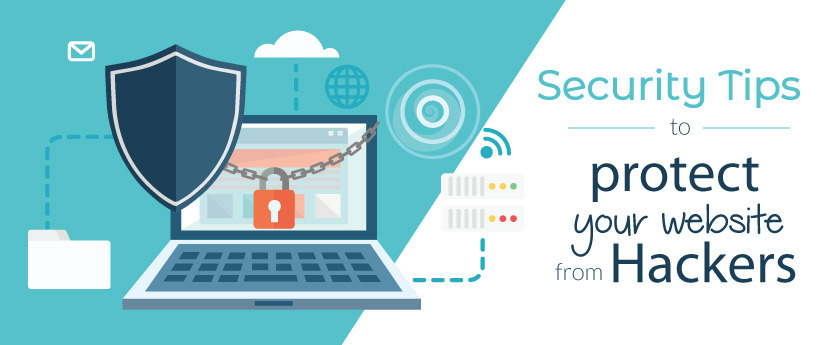2019 is about to start and the cyber threat is still a problem for many. All the while you are contented thinking that your website is safe from hackers, your website is prone to hacking. It is difficult to say as to why would one intend to hack your website. There is a multitude of reasons to do so and some attackers have nefarious motives.
Cyberworld has changed a lot and there are many tactics available to protect your website from hackers. Here are 7 security tips for you from experts of Ecommerce website development company.
A software when tracks any security hole in the website is an invitation to the hackers to abuse the site. So applying the security updates is essential to keep your site secure.
A software update is mandatory whether you are running a CMS on your website or having a server operating system. Apart from both, you should also update the website security solution and the antimalware solution.
You may not require the regular updates if you are using a managed hostings solution. So, choose a hosting provider who has a reputation for providing effective security.
In case you have any dependencies then also keep it updated using notifications about a threat from tools like Gymnasium.

You can protect the server and the website admin areas by using a strong password. However, that is not enough for preventing hacking because the users too should follow good password practice to secure their accounts.
The strict rule is to use one numerical digit and one uppercase letter in the password and making it altogether 8 characters to better protect the information.
An additional layer of security includes storing the password as an encrypted value or you may also use hashed passwords which are resistant to decrypt.
You can restrict users from uploading any files to your website as that is a great security threat. You never know a hacker may upload some dangerous script in form of a simple message or innocent image.
It is important to take necessary precautions by allowing users to upload only specific types of files. The trick being difficult monitoring of the extension of each and every file. However, it can be well sorted by modern applications!
The best thing is to restrict the physical access to your server and remove any executable permissions for the file to prevent its execution and ensure website security.

When a hacker uses URL parameter and web form field to manipulate your database SQL injection attacks occur. It may lead to leakage of sensitive information, loss of data, control of db serve, denial of service, and decline of reputation.
Standard Transact SQL allows the user to insert the rouge code into your query and access desired information. You can better safeguard the browser by knowing the culprit.
Instead of using the Standard Transact SQL it is suggested to use parametrised queries, which is easy to implement and this web feature is present in most web languages.

Do not disclose your detailed errors to the users but keep it in the server logs. Let the users have only the information they need.
Error messages are phishing and mostly happen through the emails where you may relieve some sensitive information accidentally such as card numbers. Limiting the error messages will prevent the leaking of the secrets on your servers such as database passwords or API keys.
Providing full exception details leads to complex SQL injection attacks. So, beware of error messages and be careful of how much information to give away.
Hackers commonly inject malicious javascript to change the content of the webpage. Allowing comments without validation give flexibility to the hacker to upload content containing script tags and JavaScript.
This results in a loss of users credentials and account details and manipulation of your database. It is easy and effective to inject the Javascript into the HTML and run the code of the content by frameworks like Angular and Ember.
By using the Content Security Policy your server can tell the browser to limit the execution of specific Javascript such as disallowing inline Javascript or the scripts not hosted on your domain.
Alternately you can use element.setAttribute and element.textContent when dynamically generating HTML. These functions will make the desired changes and are appropriately escaped by the browser.
You can set a web application firewall between your website server and the data connection. A firewall can be a software or hardware based and can read every bit of data passing through it.
If you install the cloud-based web application firewall it will serve as the gateway for all incoming traffic and filter out unwanted traffic.
A robust firewall will block all the hacking attempts and keep away spammers and malicious bots. It will also restrict the outside access only to the ports 80 and 443.
Don’t neglect to secure your site and protecting against hackers. Follow the above tips to keep your website healthy and safe. Our dedicated experts of website design in Malaysia use set of security rules to protect your website. If you are planning for e-commerce website development then contact us! Our customer support service is available round the clock.
You may share your story of being hacked using our comments facility. We will be glad to hear from you. Also, feel free to share your opinion and feedback.